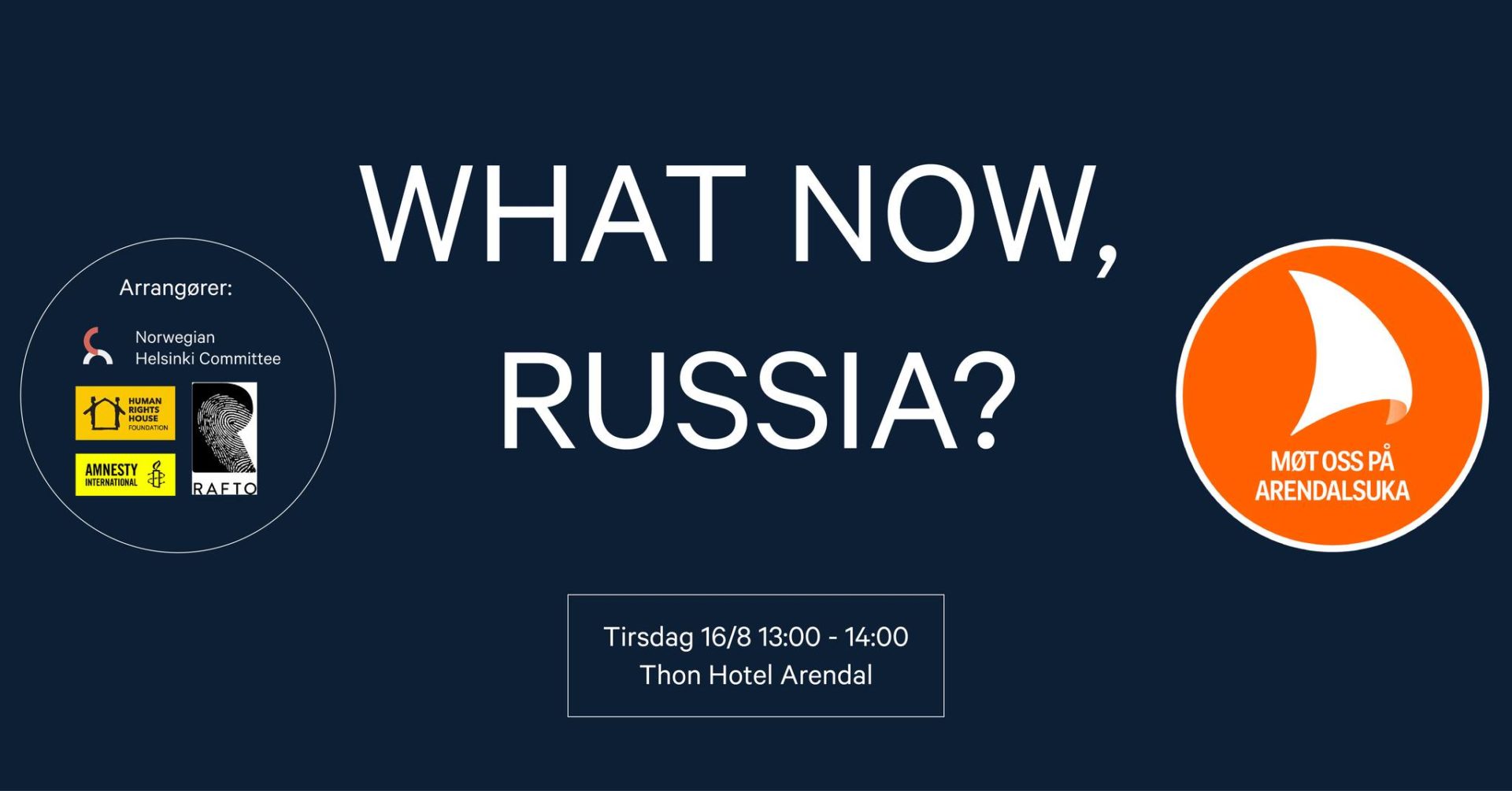
Arendalsuka // What now, Russia?
What is really going on in Russia today? On 16 August 2022, HRHF and other Norwegian organisations discussed the human rights situation in Russia at an event at Arendalsuka, Norway.



What is really going on in Russia today? On 16 August 2022, HRHF and other Norwegian organisations discussed the human rights situation in Russia at an event at Arendalsuka, Norway.



Vil du bruke din kommunikasjonskraft til å beskytte organisasjonsfriheten, løfte menneskerettighetsforkjempere og styrke sivilsamfunnets stemme?
In November, Serbia marks one year since the Novi Sad railway station canopy collapse, and the subsequent student protests sparked by it. Today, despite growing international attention, concerns over the country’s human rights situation are deepening, and civil society warns about escalating repression as the government responds to dissent. Human Rights House Foundation spoke with Jovana Spremo, Advocacy Director at the Lawyers’ Committee for Human Rights (YUCOM), about this situation and more.
Det har blitt langt vanskeligere for menneskerettighetsforsvarere å få visum til Norge og andre Schengen-land. Dermed hindres de i å delta der beslutningene tas, og vi bidrar til å svekke kampen for rettigheter og demokrati.